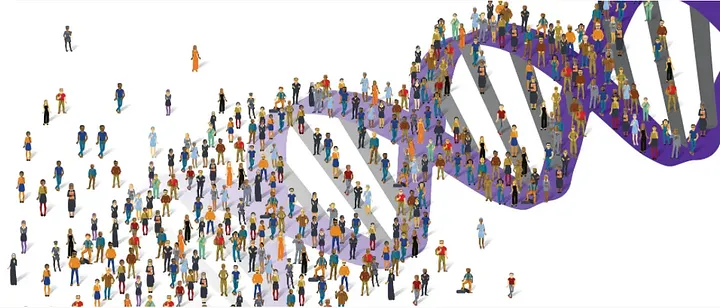Featured Pieces

When Practice Makes Perfect: The Neurons Behind Skilled Movement
Meet the UNC graduate student uncovering the mysteries behind how our brains control movement. Her work studying a rare type of neuron reveals surprising evidence that stimulating these cells not only improves precise movements, but could potentially help restore motor skills after injury.

The Need for Diversity in Large-Scale Genetic Studies
Discover why the lack of diversity in Genome-wide Association Studies (GWAS) is more than a social issue—it's a scientific blind spot that could be missing key insights into human genetics.
BrainPost Articles
I regularly contribute to BrainPost, translating cutting-edge neuroscience research into accessible explanations for diverse audiences.

Firing in Rhythm: Simultaneous Ripples Across Distant Brain Regions Facilitate the Integration of Brain Signals
When high-frequency brain waves, known as "ripples", occur simultaneously across distant brain regions, they facilitate the integration of brain signals—revealing new insights into how the brain coordinates complex cognitive processes.

How the Orbitofrontal Cortex Learns How to Learn
The orbitofrontal cortex (OFC) plays a crucial role in adaptive learning, helping us understand how the brain develops strategies for acquiring new information and adjusting behavior based on experience.

Modelling Human Psychological Responses to Robots: The Positive, the Negative, and the Competent
As robots become increasingly present in our everyday lives, understanding our psychological responses to them becomes crucial for designing effective human-robot interactions and predicting social acceptance.

Neuroscience-Backed Strategies to Help You Learn More Effectively
Whether we are in school, with our friends, or pursuing new skills, understanding how our brains learn can help us develop more effective strategies for acquiring and retaining new information.

Cracking the Serotonin Code: How Your Brain Predicts Future Rewards
Serotonin neurons signal a prospective code for value—revealing how our brains don't just respond to rewards we receive, but actively predict and prepare for future rewards.

Neural Economics: Understanding the Brain's Energy Budget
How much of your body's energy does your brain use? The average adult brain consumes about 20% of our total energy, revealing fascinating insights into the metabolic demands of cognition.
Read More
Explore more of my science communication work:
Other Science Communication Involvement
I’m actively involved in various science communication initiatives aimed at making complex neuroscience and genomics research accessible to diverse audiences:
- Science Writing Workshops - Conducting training sessions for fellow researchers on how to effectively communicate their findings to non-specialist audiences
- Public Outreach Events - Participating in community events to engage the public with current neuroscience research
- Social Media Science Communication - Creating accessible science content for social media platforms to reach broader audiences
- Science Policy Communication - Translating complex research findings into briefings for policy stakeholders